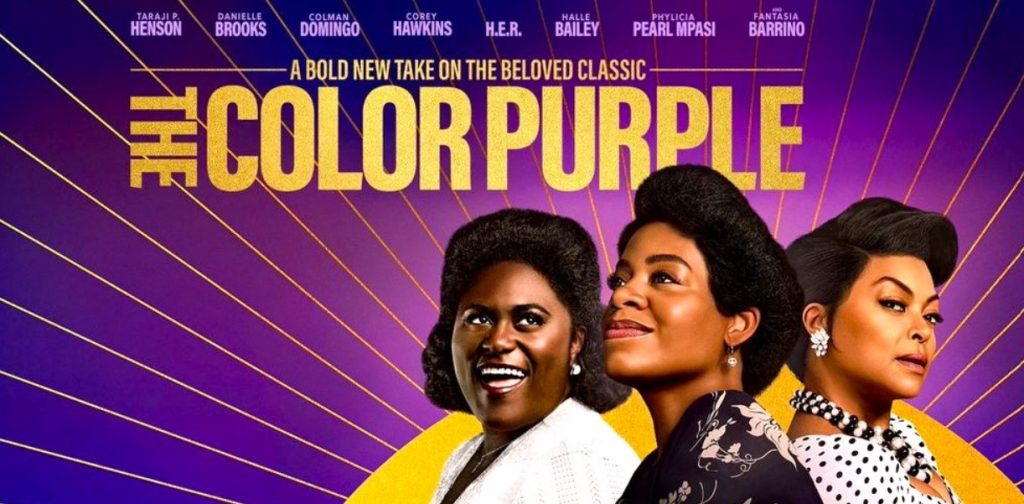The Color Purple – Movie Reviews by Ry!
The Color Purple – Pain, Power and Love: The Songs of Sisterhood
The world of film provides worth in many ways. Through endearing characters or an escapable journey, the medium has many paths to move hearts. To mark purpose through a genuine feeling is a daunting task, but it can be a memorable experience … even for a remake. In this review, I look at a reimaging of a classic tale. Through a general human journey with a strong ensemble cast, The Color Purple is an engaging tale that showcases the power of sisterhood … with a musical twist.
This is the story about Celie (Fantasia Barrino), a woman who perseveres through many hardships with the strength of hope and sisterhood. Telling a story is a delicate balance between capturing the hearts of the audience and being genuine. Through this ideal balance, it becomes more difficult when the filmmakers attempt to remake a classic tale. In the beginning, we come into the film through the drop-in method via song and dance, a sequence that introduces us to a small Georgian town and two young sisters, Celie (Phylicia Pearl Mpasi) and Nettie (Halie Bailey). From here, the journey moves through yearly jumps by a string of dramatic and musical moments, highlighting thematic tones of struggle, hardship, and the sisterhood motif. Each scene is driven through these humanistic threads, built up by the empowering music and Celie’s unbecoming circumstances. With her situation (forced marriage, separation from her sister), it becomes a journey that weaves through its thematic tones, melodramatic sequences and stage play monikers. Even with these elements and references to the original, it is the genuine appeal of the musical application that propels interactions to feel lively because of the engrossing perspective of the human experience. These interactions are endearing because of the cathartic nature that is highlighted by her marriage to Mister (Colman Domingo), unlikely bond to Shug Avery (Taraji P. Henson) and endearing friendship to Sofia (Danielle Brooks). Through each sequence, the melodrama is dispelled by the uniqueness of captured nostalgia within a stage play concept, driving an adaptation that is surreal but profound. You are driven by the characters’ struggles, but also see a pathway of hope and redemption.
As Celie continues through her struggles, the markers of distraught lead to a revelation of circumstance. Each moment is lived through characterization, creating an emotional brevity through its musical quips. As life begins to turn towards ominous hope, it lifts the journey above its telegraph moments. As Celie discovers her true purpose, it leads into a third act that builds emotional moments through the strength of a musical climax and hopeful epilogue. The Color Purple is an adaptation that captures the strength of the original with a musical slant. If you are fan of musicals, endearing tales or ensemble casts, this is one for you. This is a remake done right … worthy of the big screen.
Full Score – 4 out of 5 (Full Price)

 Previous Post
Previous Post Next Post
Next Post